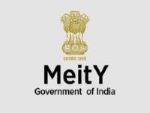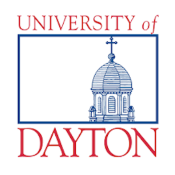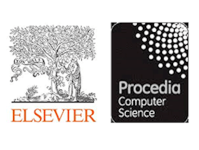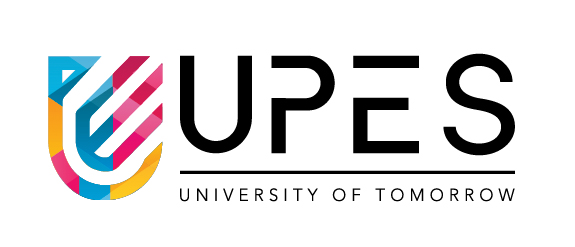

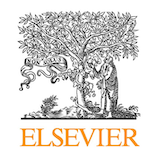
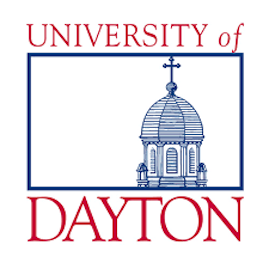
4th International Conference on Machine Learning and Data Engineering
All accepted papers will be published in Procedia Computer Science Journal, Elsevier
About ICMLDE 2025
The 4th International conference on Machine Learning and Data Engineering (ICMLDE 2025) is an international venue for the presentation of original research findings, as well as the exchange and dissemination of creative, practical development experiences in various engineering domains. The conference draws researchers and application developers from a wide range of artificial and data engineering related areas along with their algorithms and applications of current issues of almost all branches of Engineering and Technology.
This conference aims to broaden its scope in the areas of Machine Learning and Data Engineering by including expert speeches and presentations from young researchers in each session. The conference aims to enhance the state-of-the-art in Machine Learning and Data Engineering, as well as other promising areas of computing, by encouraging fresh, high-quality research discoveries and inventive solutions to tough machine learning challenges. Researchers, academicians, and professionals from all over the world are invited to submit original, unpublished research papers from all perspectives, including theory, practice, experimentation, and review papers highlighting specific research domains for presentation in the conference's technical sessions.
The conference will create a cross-disciplinary summit that will bridge the gap between departmental, institutional, industrial, public and private research organizations, and global barriers, allowing for the integration of research and education in the emerging field of Machine Learning and Data Engineering.
ICMLDE 2022 received more than one thousand manuscripts worldwide including Algeria, Bangladesh, China, Czechia, Eswatini, Ethiopia, Finland, France, India, Iran, Iraq, Ireland, Italy, Jordan, Korea, The Democratic People's Republic of Malaysia, Morocco, Nigeria, Norway, Oman, Peru, Philippines, Saudi Arabia, Slovakia, South Korea, Spain, Sri Lanka, Switzerland, Turkey, United Arab Emirates, United Kingdom, United States, Uzbekistan, and Viet Nam. A large number of high-quality submissions were received from them 273 were accepted for publication in Procedia Computer Science Journal, Elsevier. All papers have been published in Procedia Computer Science, Elsevier, Vol 218, 2023. All accepted papers are available online at www.sciencedirect.com and https://dl.acm.org/. All accepted papers have been indexed in the SCOPUS database. ICMLDE 2022 was sponsored by SERB, Department of Science and Technology, Government of India.
ICMLDE 2023 garnered significant attention, with more than 1000 submissions from over 3,500 contributors spanning across the globe. The submissions were from 45 countries, including India, United States, Russia, Oman, Sri Lanka, Hungary, Nigeria, Saudi Arabia, Viet Nam, Bangladesh, Canada, UK, Malaysia, Australia, Thailand, Ethiopia, Morocco, Norway, Philippines, Spain, Turkey, South Africa, Tunisia, China, France, Zimbabwe, Germany, Cyprus, Czechia, Poland, UAE, Algeria, Finland, Iraq, Netherlands, Saint Barthelemy, Bahrain, Ecuador, Jordan, Peru, Singapore, Switzerland, Uzbekistan, South Sudan. A very large number of high-quality submissions were received from them 324 were accepted for publication in Procedia Computer Science Journal, Elsevier. ICMLDE 2023 was sponsored by SERB, Department of Science and Technology, Government of India, IBM and Ministry of Electronics and Information Technology, India. All papers have been published in Procedia Computer Science, Elsevier, Vol 235, 2024. All accepted papers are available online at www.sciencedirect.com and https://dl.acm.org/. All accepted papers have been indexed in the DBLP and SCOPUS database.
ICMLDE 2024 received 1505(One thousand five hundred and five) submissions spanning across the globe. Which seen participation from over 3,800 contributors across 47 countries. Many high quality submissions were received from them, 400 were accepted for publication in Procedia Computer Science Journal, Elsevier. ICMLDE 2024 was sponsored by the Ministry of Electronics and Information Technology (MeitY) and IBM. All papers have been published in Procedia Computer Science, Elsevier, Vol 258, 2025. All accepted papers are available online at www.sciencedirect.com and https://dl.acm.org/. All accepted papers have been indexed in the SCOPUS database.
ICMLDE 2025 received 1690(One thousand six hundred and ninety) submissions spanning across the globe. Which seen participation from over 6000 contributors worldwide. All presented and accepted papers will be published in Procedia Computer Science, Elsevier.ICMLDE 2025 has sponsored by the Ministry of Electronics and Information Technology (MeitY) and SERB, Anusandhan National Research Foundation, Government of India.
Important Dates
| Important Dates | |
| Paper Submission Hard Deadline | 30th August 2025 |
| Round 01 Acceptance Notification Date | 05th October 2025 |
| Round 01 Conference Registration Deadline | 9th October 2025 |
| Round 01 Camera Ready Manuscript Date | 10th October 2025 |
| Round 02 Acceptance Notification Date | on or before 15th October 2025 |
| Round 02 Camera Ready Manuscript Date | on or before 15th October 2025 |
| Round 02 Conference Registration Deadline | on or before 15th October 2025 |
| Conference Date | 6-8 November 2025 |
Call for Papers
Original contributions from researchers describing their original, unpublished, research contribution which is not currently under review by another conference or journal and addressing state-of-the-art research are invited to share their work in all areas of ICMLDE but not limited to the conference tracks.
Conference Sub Themes and Tracks:
| Machine Learning Foundations | Deep Learning and Data Engineering: | |
|
|
|
| Machine Learning and Data Engineering | APPLICATIONS | |
|
|
Conference Committees
Advisory Committee Chairs
Panos Liatsis, Khalifa University,UAE
Siddhartha Bhattacharyya,, University of Illinois, Chicago, USA
Xiao-Zhi Gao, University of Eastern Finland, Finland
João Paulo Papa, São Paulo State University, Brazil
Seifedine Kadry, Noroff University College, Norway
A Bretto, University of Caen Normandy, France
Pilipczuk, Olga, Szczecin University, Poland
Kalpic, Damir, University of Zagreb, Croatia
Balas Valentina Emilia, Balas Valentina Emilia, Aurel Vlaicu” University of Arad, Romania
Mojtaba Ahmadiehkhanesar, University of Nottingham, UK
Zafer Bingül, Kocaeli University, Turkey
Gan, Christopher, Lincoln University, New Zealand
Joseph Tan, McMaster University, Canada
Larisa Ivașcu, Politehnica University of Timisoara, Romania
Sheng-Lung Peng, National Taipei University of Business, Taiwan
Huchang LIAO, Sichuan University, China
Danilo Pelusi, Aurel Vlaicu” University of Arad, Romania
David Taniar, Monash University, Australia
Grzegorz Chodak, Wroclaw University of Science and Technology, Poland
Hosam El-Ocla,, Lakehead University, Canada
Rubén González Crespo, Universidad Internacional de La Rioja, Spain
Jaime Lloret Mauri, Polytechnic University of Valencia, Spain
Yaw-Ling Lin, Providence University, Taiwan
Scientific Committee Chairs
Tein, Weng, Providence University, Taiwan
Hosam El-Ocla, Lakehead University, Canada
Pelusi, Danilo, University of Teramo, Italy
Jacob Scharcanski, Federal University of Rio Grande do Sul
Gianni D'Angelo, University of Salerno, Italy
Suman Deb, National Institute of Technology, Agartala, India
Tariq Ahmed Albusyuni, The University of Western Australia, Australia
Syed Afaq Shah, The University of Western Australia
Raja Kumar Murugesan, Murugesan, Taylor’s University, Malaysia
Abawajy, Jemal, Deakin University, Australia
Seifedine Kadry, Noroff University College, Norway
Scientific Committee Members
Gianni D'ANGELO, University of Salerno, Italy
Adam Wasilewski, Wroclaw University of Science and Technology, Poland
Omar Hussain Omar Alhazmi, Taibah University, Saudi Arabia
Garima Bajwa, Lakehead University, Canada
Pankaj Kumar, UPES, India
Grzegorz Chodak, Wroclaw University of Science and Technology, Poland
Nagentrau Muniandy, Taylor’s University, Malaysia
Tariq Ahmed Albusyuni, King Fahd University Of Petroleum and Minerals, Saudi Arabia
Oluwafemi Oriola, Adekunle Ajasin University, Nigeria
Imran Khan, Sultan Qaboos University, Oman
Varun Aggarwal, Real lntent, USA
Rajkumar Rajasekaran, Vellore Institute of Technology,India
Hosam El-Ocla, Lakehead University, Canada
Srinivas Katkoori, University of South Florida, USA
Xinrui Cui, University of North Texas, USA
Pao-Ann Hsiung, National Chung Cheng University, Taiwan
Mukul Joshi, Nvidia, Santa Clara, CA, USA
Fatemeh Daneshfar, University of Kurdistan, Iran
Seifedine Kadry, Noroff University College, Norway
Usha Kosarkar, G H Raisoni Skilltech University, India
Jacob Scharcanski, Federal University of Rio Grande do Sul (UFRGS), Brazil
Lochandaka Ranathunga, University of Moratuwa, Sri Lanka
Gautam Srivastava, Brandon University, Canada
Gadadhar Sahoo, IIT(ISM) Dhanbad, India
Syed Afaq Shah, University of Western Australia, Australia
Amaal Al-Hashimy, Sultan Qaboos University, oman
Lyes BENYOUCEF, Domaine Universitaire de Saint Jérôme, France
Dante Barone, Federal University of Rio Grande do Sul, Brazil
Hukum Singh, Tezpur University, India
Mohamed Firdhous, University of Moratuwa, Sri Lanka
Dickson Chiu, University of Hong Kong, Hong Kong
Rahimeh Neamatian Monemi, University of Southampton, UK
Buriro Attaullah, University of Bolzano, Italy
Saminda Premaratne, University of Moratuwa, Sri Lanka
Raja Kumar Murugesan, TAYLOR’S UNIVERSITY, Malaysia
Olga Pilipczuk, University of Szczecin, Poland
Shahin Gelareh, University of Southampton, UK
Quanjin Ma, Universiti Malaysia Pahang, Malaysia
Gianni D'Angelo, University of Salerno, Italy
Tor-Morten Grønli, Kristiania University College , Norway
N G J Dias, University of Kelaniya, Sri Lanka
Amlan Basu, University of Strathclyde, UK
Bruno Carpentieri, Free University of Bozen-Bolzano, Brazil
Felix Ola Aranuwa, Adekunle Ajasin University, Nigeria
Predrag Stanimirovic, University of Niš,Serbia
Olusola AJAYI, Adekunle Ajasin University, Nigeria
Byung-Woo Hong, Chung-Ang University, Korea
Akingbesote Alaba, Adekunle Ajasin University, Nigeria
Hoda A.Alkhzaimi, New York University, Abu Dhabi
Felix ARANUWA, Adekunle Ajasin University, Nigeria
Siyamalan Manivannan, University of Jaffna, Sri Lanka
Syed Afaq Shah, The University of Western Australia,
Saban Ozturk, Amasya Üniversitesi, Turkey
Chou Pui May, Taylor's University, Malaysia
Antonino Galletta, University of Messina, Italy
Mun Hou Kit, Taylor's University, Malaysia
Gamini Wijayarathna, University of Kelaniya, Sri Lanka
Dariush Ebrahimi, Lakehead University, Canada
Marcin Woźniak, Silesian University of Technology, Poland
Chandra Mani Sharma, UPES, India
Sanoj Kumar, UPES, India
Vishal Sharma, UPES, India
Tripty Singh, Amrita Vishwa Vidyapeetham, India
Xu An Wang, Engineering University of People’s Armed Police, China
Zena Khalil, University of Al-Qadisiyah,Iraq
Bruno Carpentieri, Free University of Bozen-Bolzano, Italy
Wilver Auccahuasi Aiquipa, Universidad Privada del Norte, Peru
Tabatabaei Yazdi, Nazi Massey University, New Zealand
Hamza Zidoum, Sultan Qaboos University, Sultanate of Oman
Ngatchou New Jersey City University, USA,
Ali Kadhum Idrees, University of Babylon, Iraq
Карпов Илья, HSE University, Russia
Grzegorz Chodak , Wroclaw University of Science and Technology, Poland
Natalia Kryvinska, Comenius University in Bratislava, Slovakia
Lamia HAMZA, University A-Mira, Algeria
Hamza Zidoum, Sultan Qaboos University, Oman
Danilo Pelusi, University of Teramo, Italy
Sattam Almatarneh, Middle East University, Jordan
Piramuthu Selwyn, University of Florida,USA
Olga Fedevych, Lviv Polytechnik National University, Ukraine
Hårek Haugerud, Oslo Metropolitan University, Norway
Ram Kumar Karsh, National Institute of Technology, Silchar,India
Jiang,Xiaohong, Zhejiang University, China
Sarkar Nurul, Auckland University of Technology,New Zealand
Justin Bradley, University of Nebraska-Lincoln, USA
Vivek Tiwari, International Institute of Information Technology, Raipur,India
Sandeep Samantaray, National Institute of Technology, Srinagar,India
Cheng Zixue, University of Aizu,Japan
Jack Erskine, University of Canterbury, New Zealand
Zoltan Mann, University Duisburg-Essen, Germany
Suman Halder, NIT Durgapur, India
Vanesa Daza, Universitat Pompeu Fabra, Spain
Muhammad Fazal Ijaz, Sejon University Seoul, South Korea
Suman Deb, National Institute of Technology, Agartala,India
Antonio Mana Gomez, University of Malaga, Spain
Monalisa Ghosh, National Institute of Technology, Durgapur,India
M.M. Dastani, Utrecht University, Netherlands
Ahmed Albarbari, Arab Open University, Saudi Arabia
Witold Maranda, Lodz University of Technology, Poland
Jyoti Prakash Singh, National Institute of Technology, Patna,India
Amir Kamil, University of Michigan, USA
Lars Braubach, University of Hamburg, Germany
Ahmad Neyaz, University of Electronic Science and Technology, China
Ashar Khan, Sultan Qaboos University, Oman
NaMark Tamene, Debere Markos University, Ethiopia
Haibo Zhang, University of Otago, New Zealand
Riyadh Baghdadi, New York University, Abu Dhabi
Ciprian Dobre, University Politehnica of Bucharest, Romania
Vinh Truong Hoang, Nguyen Tat Thanh University,Vietnam
Hyun Ki Hong, Chung-Ang University, Sourh Korea
Ashish Dutta, Malaviya National Institute of Technology, India
Sowmya V, Amrita Vishwa Vidyapeetham, India
Gareth Callanan, Lund University, Sweden
Namita Mittal, Malaviya National Institute of Technology, Jaipur
Vincent Peter Magboo, University of the Philippines Manila, Philippines
Mercado Rizza DC., University of the Philippines Los Baños,Philippines
Shuran Song, Columbia University, USA
Shruti Jain, Jaypee University of Information Technology,India
Ella Pereira, Edge Hill University, UK
Wu Suzhen, Xiamen University,China
Debbie Perouli, Marquette University, USA
Natalia Kryvinska, University of Vienna, Austria
Wang Xiaolong, Harbin Institute of Technology, China
Jeffrey Blankenship, Central Connecticut State University, USA
Tannistha Pal, National Institute of Technology, Agartala,India
Rifat Shahriyar, Bangladesh University of Engineering and Technology, Bangladesh
Fatemeh Daneshfar, University of Kurdistan,Iran
Ehsan Ahmad, Saudi Electronic University, Saudi Arabia
Agusti Solanas, University Rovira i Virgili, Spain
Gopalakrishnan E.A, Amrita Vishwa Vidyapeetham, India
S.R. Liyanage, University of Kelaniya, Sri Lenka
Vera Pantelic, McMaster University, Canada
Neetu Sardana, Jaypee Institute of Information Technology,India
Siamac Fazli, Nazarbayev University, Kazakhstan
Huang Xinyi, Fujian Normal University,China
Gelareh Shahin, Portsmouth Business School, UK
Hassan Mostafa, Al-Baha University, KSA
Aneta Poniszewska-Marańda, Lodz University of Technology, Poland
Mitchell McEwan, Macquarie University, Australia
Inhi Kim, Kongju National University, South Korea
Bo Liu, Massey University, New Zealand
Hsiung Pao-Ann, National Chung Cheng University,Taiwan
Enn Ounapuu, Tallinn University of Technology, Estonia
Gaurav Hajela, Maulana Azad National Institute of Technology, India
Sadia Sharmin, Bangladesh University of Engineering and Technology, Bangladesh
Kamińska Anna, Wrocław University of Science and Technology, Poland
Emily Graetz, University of Michigan, USA
Meenakshi Sood, National Institute of Technical Teachers Training & Research, India
Ivanna Droniuk, Lviv Polytechnik National University, Ukraine
Amjad Mehmood, Kohat University of Science & Technology, Pakistan
P. Karthikeyan, National Chung Cheng University,Taiwan
Tauseef Khan, Aliah University,India
Junier Oliva, University of North Carolina, USA
Chiranji Lal, Vellore Institute of Technology,India
Sachin Chaudhary, UPES,India
Vrijendra Singh, Indian Institute of Information Technology,India
Salimur Choudhury, Lakehead University, Canada
Yasmin Fathy, University of Cambridge, UK
Seifedine Kadry, Beirut Arab University Lebanon,
Jakub Swacha, University of Szczecin, Poland
Burns John, Clark University,USA
Nasser Alzeidi, Sultan Qaboos University, Oman
Bol Roland, Uppsala University, Sweden
JIANG Lingxiao, Singapore Management University, Singapore
Marcin Wozniak, Silesian University of Technology, Poland
Mudasir Bhutt, University of Kasmir, India
WANG Hai, Singapore Management University, Singapore
Sagonas Konstantinos Konstantinos, Konstantinos , Sweden
Laabadi Soukaina, Hassan II University - Casablanca, Morocco
Mehmet Can Vuran, University of Nebraska-Lincoln, USA
Chernyi Sergei , Admiral Makarov State University of Maritime and Inland Shipping, Russia
Prashant Kumar, National Institute of Technology, Durgapur,India
Lina Barilienė, Vytautas Magnus University, Lithuania
Mette Kaufmann Andersen, Aalborg University, Denmark
Mulugeta Libsie, Addis Ababa University, Ethiopia
Vytautas Bukšnaitis, Vytautas Magnus University, Lithuania
Leszek Borzemski, Wroclaw University of Science and Technology, Poland
James Wills, Oakton community college, USA
You Ilsun, Soonchunhyang University,South Korea
Serge Gaspers, University of New South Wales, Australia
U. Srinivasalu Reddy, NIT, Trichy,India
Mayuri Kharde, National Institute of Technology, Tiruchirappalli,India
Suman Deb, National Institute of Technology, Agartala,India
Adrian Iftene, Alexandru Ioan Cuza University of Iasi, Romania
Daniel Burmester, Victoria University of Wellington, New Zealand
De Carvalho Andre Ponce de Leon F., Universidade de São Paulo,Brazil
Prabir Saha, National Institute of Technology, Meghalaya,India
D'Angelo Gianni, University of Salerno,Italy
Hossam Abdel Salam Diab, Taibah University, Saudi Arabia
Vinh Truong Hoang, Ho Chi Minh City Open University, Vietnam
Bhuiyan Md, Fordham University,USA
Maniaol Rozano S., University of the Philippines Los Baños,Philippines
Wan Lanjun, Hunan University,China
David Brander, Technical University of Denmark, Denmark
Nor Ilia Anisa Binti Aris, Taylor's University, Malaysia
Debasis Tripathy, National Institute of Technology, Silchar,India
Giovanni Bacci, Aalborg University, Denmark
James Papademas, Oakton community college, US
Oriola Oluwafemi, Adekunle Ajasin University, Nigeria
Tianjia Shao, Zhejiang University, China
Byung Jeong Lee, University of Seoul Engineering, South Korea
Zena H. Khalil, University of Al-Qadisiyah,Iraq
Xue Chun Jason, City University of Hong Kong,Hong Kong
Roopesh Kevin Sungkur, University of Mauritius, Mauritius
Pardeep Singh, National Institute of Technology,India
Boujemâa Achchab, Hassan 1er University, Morocco
Frida Pemer, Oslo Metropolitan University, Norway
Roland Depratti, Central Connecticut State University, USA
Ohue Masahito, Tokyo Institute of Technology, Japan
Tinku Singh, Indian Institute of Information Technology,India
Navaux Philippe O. A., Federal University of Rio Grande do Sul,Brazil
Ajmer Saini, Deenbandhu Chhotu Ram University of Science and Technology, India
Shen Liping, Shanghai Jiao Tong University, China
Kiki Adhinugraha, La Trobe University, Australia
Wilver Auccahuasi, Universidad Continental, Peru
Mehofer Eduard, University of Vienna,Italy
Mara Abel, Universidade Federal do Rio Grande do Sul, Brazil
Nallapaneni Manoj Kumar, City University of Hong Kong, Hong Kong
Ali Thaeer Hammid, Imam Ja’afar Al-Sadiq University, Iraq
Jin-Cheol Heo, Keimyung University, South Korea
Koppala Guravaiah, Indian Institute of Information Technology Kottayam, India
Chernyi Sergei, St.Petersburg State Marine Technical University,Russia
Sajjad Mahmood, King Fahd Univeristy Of Petroleum And Minerals, Saudi Arabia
Yen Hsu-Chun, National Taiwan University,Taiwan
Pradeep Kumar, National Institute of Technology,India
Chodak Grzegorz, Wrocław University of Science and Technology, Poland
Viviane Pereira Moreira, Federal University of Rio Grande do Sul, Brazil
Oh Kai Siang, Taylor's University, Malaysia
Y. Lig Lin, Providence University, Taiwan
Luis Soares Barbosa, University of Minho, Portugal
Scott Williams, Bradley University, USA
Ashis Kumar Das, Uttar Banga Krishi Viswavidyalaya, India
Muhammad Awais Javed, COMSATS,Pakisthan
Paramvir Singh, University of Auckland, New Zealand
Ashish Kumar Sahu, National Institute of Technology, Jamshedpur,India
Fabrício Simeoni de Sousa, University of Sao Paulo, Brazil
Nasser Tabook, Sultan Qaboos University, Oman
Kim Jindae, Seoul National University of Science & Technology,South Korea
Shimaa Abdullah Nagro, Saudi Electronic University, Saudi Arabia
Diego Molla Aliod, Macquarie University, Australia
Nir Lipovetzky, The University of Melbourne, Australia
Mehmood Amjad, Kohat University of Science and Technology,Pakisthan
Pranitha Boddu, National Institute of Technology, Warangal,India
Roopesh Kevin Sungkur, University of Mauritius, Mauritius
Meng Weizhi, Technical University of Denmark,Denmark
Wha Sook Jeon, Seoul National University, South Korea
Aliyu Olubunm, Adekunle Ajasin University, Nigeria
Aneas Riener, Technische Hochschule Ingolstadt, Germany
Krishna Chaitanya Rao, University of Massachusetts Amherst, USA
Sudeep Tanwar, Nirma University, India
Eswaran Balamurugan, University of Africa, Nigeria
Dawid Polap, Silesian University of Technology, Poland
Xu Zenglin, Harbin Institute of Technology, China
Euripides Petrakis, Technical University of Crete, Greece
Pardeep Kumar, Jaypee University of Information Technology, India
Lesourd Martin, Clark University,USA
Elias Bareinboim, Columbia University, USA
Satya Prakash Sahu, National Institution of Technology, Raipur,India
Yasir Zaki, New York University, Abu Dhabi
Angelo Spognardi, "La Sapienza" University of Rome, Italy
Flávio Rech Wagner, Federal University of Rio Grande do Sul, Brazil
Bach Le, The University of Melbourne, Australia
Ashwani SHARMA, Insight Biosolutions, France, Pépinière d'entreprises Biopôle
Arjun Singh Saud, Tribhuvan University, Nepal
Imran Memon, Zhejiang University, China
Liu Xiao, China Normal University,China
Akansha Singh, Bennett University,India
Alexey Neznanov, HSE University, Russia
Grønli Tor-Morten, Westerdals Oslo School,Norway
Vivek Tiwari, International Institute of Information Technology, Naya Raipur,India
Michael J Dinneen, University of Auckland, New Zealand
Xunli Fan, Northwest University, China
SEUNG LEE, NC State University, USA
Remy Dupas, Université de Bordeaux, France
Maria Ganzha, Warsaw University of Technology, Poland
Jacob T Prem, Sathyabama Institute of Science and Technology,India
Sushila Palwe, MIT World Peace University, India
De Sousa Fabricio Simeoni, University of São Paulo,Brazil
Payam Ebrahimi, Vrije Universiteit Brussel, Belgium
Samira Bahia, Deakin University, Australia
Nikolaos Triandopoulos, Stevens Institute of Technology, USA
Tian Hui, Beijing Jiaotong University,China
S B Goyal, City University, Malaysia
Maria Ganzha, Warsaw University, Poland
Kise Kenji, Tokyo Institute of Technology, Japan
Ujjwal Manikya Nath, Jorhat Engineering college, India
Vasilios Katsikis, National and Kapodistrian University of Athens, Greece
Velliangiri S, SRM Institute of Science and Technology, Tamilnadu,India
Goutam Sanyal, National Institute of Technology, Durgapur,India
Yaregal Assabie, Addis Ababa University, Ethiopia
Ram Chandra Bhushan, MNNIT Allahabad, India
A. Ramanan, University of Jaffna, Sri Lanka
Alok Singh, University of Oxford, UK
Emil Pricop, Universitatea Petrol-Gaze din Ploiești, România
Khalimjon Ergashevich Khujamatov, Tashkent University of Information Technologies,Uzbekistan
Dolly Jorgensen, University of Nevada, USA
Lov Kumar, Birla Institute of Technology and Science, India
Auday Al-Dulaimy, Mälardalen University, Sweden
Jasbir Kaur Dhaliwal, Monash University, Malaysia
Imran memon, zhejiang university , China
Yoohwan Kim, University of Nevada, USA
Pilipczuk Olga, Szczecin University,Poland
Prafullata Auradkar, PES University, India
Costin Badica, Noroff University College, Norway
Subarna Shakya, Tribhuvan University, Nepal
Arun Kumar, National Institute of Technology, Rourkela,India
Parteek Gupta, Bennett University,India
Li Fang, Nanyang Technological University, Singapore
Preethi Ananthachari, Woosong University,South Korea
Mohd Abdul Ahad, Jamia Hamdard,India
Premjith B, Amrita Vishwa Vidyapeetham, Kerala,India
Ilya Ashikhmin, Norwegian University of Science and Technology, Norway
Jong-Ha Lee, Keimyung University, South Korea
Debabrata Singh, Siksha 'O' Anusandhan,India
Jean-Claude Ngatchou, New Jersey City University, USA
E. Eisemann, Delft University of Technology, Netherlands
Rekh Ram Janghel, National Institution of Technology, Raipur,India
Lyes Benyoucef, University of Touloun,France
Dheerendra Panwar, Dell Technologies, USA
Kartik Vasudev Shenoy, Bill, San Jose, CA, USA
Pankaj Gupta, Discover Financial Services, USA
Jacob Renzo Bauer, Norwegian University of Science and Technology, Norway
Jacob Renzo Bauer, Norwegian University of Science and Technology, Norway
Richa Makhijani, Indian Institute of Information Technology, Nagpur, India
Garima Singh, Thapar Institute of Engineering and Technology, Patiala
Kanika Bhalla ,Washington University School of Medicine in St. Louis, US
Velliangiri Sarveshwaran ,National Chung Cheng University, Chiayi, Taiwan
K. Suresh Manic ,National University of Science and Technology, Oman
Feras Al Attar ,National University of Science and Technology, Oman
Shruti Jain,Jaypee University of Information Technology, India
Shubham Mahajan,Jaypee University of Information Technology, India
Mohit Mittal, Shiratech-Knowtion GmbH, Germany
Swadha Gupta, Shiratech-Knowtion GmbH, Germany
Anjan Bandyopadhyay, KIIT, Odisha, India
Sujata Swain, KIIT, Odisha, India
Donie Jardeleza, British University, Vietnam
Bibhudatta Sahoo, National Institute of Technology, Rourkela, India
Nibedan Panda,, KIIT Deemed to be University, Bhubaneswar,India
Hiren Kumar Thakkar,, Pandit Deendayal Energy University, India
Djeane Debora Onthoni,, National Health Research Institutes, Zhunan, Taiwan
Hiren Mewada,Prince Mohammad Bin Fahd University, Saudi Arabia
Bilal OZTURK,Istanbul Aydin University. Istanbul, Turkey
Hayder Mohammed Qasim,Istanbul Aydin University. Istanbul, Turkey
P.K. Gupta,Mohan Babu University, Tirupati, AP, India
Mohammad Khubeb Siddiqui,IBM Australia, Australia
Hemraj Singh, UPES, India
Rubén Morales Menéndez,Tecnológico de Monterrey, Mexico
Banti Kumar,UPES, India
Matthew O Adigun,University of Zululand, South Africa
Shri Krishna Pandey,Manipal Academy of Higher Education (MAHE), Dubai
Yugal Kumar,NMIMS Chandigarh Campus, India
Sahil Sharma,Ulster University, Northern Ireland, UK
Dilip Kumar Choubey,Indian Institute of Information Technology, India
Anjali Munde,University of Southampton, Malaysia
Hamed Taherdoost, University Canada West, Canada
T. Poongodi, University of Buraimi, Al Buraimi, Oman
R. Gopal, Dayananda Sagar University, Karnataka, India
M Kiruthika, SRM Institute of Science and Technology, Kattankulathur, India
Nikhil Marriwala, Kurukshetra University, Kurukshetra, India
Vinod Kumar Shukla, Amity University Dubai, UAE
Honorary Patron
Sunil Rai, Chancellor, UPES, India
Honorary General Chair
Ram Sharma, Vice Chancellor, UPES, India
General Chairs
Vijayan K Asari, University of Dayton, Ohio, USA
Panos Liatsis, Khalifa University, UAE
Kuan Ching Li, Providence University, Taiwan
Rubén González, Universidad Internacional de La Rioja, Spain
Joseph Tan, McMaster University, Canada
Program Chair(s)
Selwyn Piramuthu, University of Florida, USA
Cheng, Qiang, University of Kentucky, USA
Srinivas Katkoori, University of South Florida, USA
Neelu J. Ahuja, UPES, India
Mojtaba Ahmadiehkhanesar, University of Nottingham, UK
L V Subramaniam, IBM India Research Laboratory, India
Organizing Chairs
Vijendra Singh, UPES, India
Technical Chairs
Anil Kumar, UPES, India
Deepa Gupta , Amrita Vishwa Vidyapeetham, India
R Rajkumar , VIT Vellore, India
Publicity Chairs
Hamed Taherdoost, University Canada West, Canada
Unal Zak Sakoglu, University of Houston, USA
Vinh Truong Hoang, Ho Chi Minh City Open University, Vietnam
Suresh Manic K, National University of Science and Technology, Oman
Sunday A. Ajagbe, University of Zululand, South Africa,
Liyakathunisa, Taibah University, Madinah, Saudi Arabia
Alwahab Dhulfiqar Zoltán, Eötvös Loránd University, Hungary
Amlan Basu, University of Strathclyde, Glasgow, Scotland, UK
Anjali Munde, University of Southampton Malaysia, Malaysia
Unnati Shah, Utica University, New York, USA
Mehdi Neshat, University of South Australia, Australia
Organizing Committee
Abhirup Khanna, UPES, India
Adarsh Kumar, UPES, India
Akashdeep Bhardwaj, UPES, India
Amar Jindal, UPES, India
Amit Ranjan, UPES, India
Anish Kumar Vishwakarma, UPES, India
Anushree Sah, UPES, India
Archna Kumari, UPES, India
Arti Bahuguna, UPES, India
Ashi Gupta, UPES, India
Ashutosh Sharma, UPES, India
Chhotelal Kumar, UPES, India
Dhiviya Rose, UPES, India
Gaurav Buddhawar, UPES, India
Gouranga Duari, UPES, India
Hemraj Singh, UPES, India
Kalluri Shareef Babu, UPES, India
Kapil Gupta, UPES, India
Kushall Pal Singh, UPES, India
Mayuresh Sunil Pardeshi, UPES, India
Mohammad Ahsan, UPES, India
Mohd Sakib, UPES, India
Nadeem Yousuf Khanday , UPES, India
Neeraj Chugh, UPES, India
Nikita Tiwari, UPES, India
Pankaj Dadure, UPES, India
Piyush Bagla, UPES, India
Prasanthi Kumari Nunna, UPES, India
Priyanka Goel, UPES, India
Rakesh Ranjan, UPES, India
Ram Krishn Mishra , UPES, India
Ravi Teja, UPES, India
Ravinanath C Cherukuri, UPES, India
Richa Kumari, UPES, India
Rochak Bajpai, UPES, India
Rohitesh Kumar, UPES, India
Sachin Choudhary, UPES, India
Saurabh jain, UPES, India
Sebanti Majumder, UPES, India
Sonal Talreja, UPES, India
Subhranil Das, UPES, India
Sunil Gupta, UPES, India
Surbhi Saraswat, UPES, India
Suvojit Dhara, UPES, India
Swati Rastogi, UPES, India
Syed Sajid Hussain, UPES, India
Thota Siva Sankar, UPES, India
Touseef iqbal, UPES, India
Ved Prakash Bhardwaj, UPES, India
Vikramjit Singh Bhathal, UPES, India
Keynote Speakers
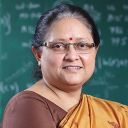
Prof. Sanghamitra Bandyopadhyay is Director and Professor at Machine Intelligence Unit, Indian Statistical Institute, Kolkata. She completed her B.Tech, M.Tech, and Ph.D. in Computer Science from Calcutta University, IIT Kharagpur, and the Indian Statistical Institute, respectively. Her research interests include computational biology, soft and evolutionary computation, artificial intelligence, and machine learning. She has authored or co-authored several books and a large number of articles in journals, book chapters, and conference proceedings. Prof. Bandyopadhyay has collaborated with many institutes and universities worldwide. She is the recipient of several honours and awards, including the Padma Shri from the Government of India, the Shanti Swarup Bhatnagar Prize in Engineering Science, the TWAS Prize, the Infosys Prize, the JC Bose Fellowship, the Swarnajayanti Fellowship, the INAE Silver Jubilee Award, the INAE Woman Engineer of the Year Award (Academia), the IIT Kharagpur Distinguished Alumni Award, the Humboldt Fellowship from Germany, the Senior Associateship of ICTP, Italy, young engineer/scientist awards from INSA, INAE, and ISCA, and the Dr. Shankar Dayal Sharma Gold Medal and Institute Silver Medal from IIT Kharagpur, India. She is a Fellow of the Indian National Science Academy (INSA), the National Academy of Sciences, India (NASI), the Indian National Academy of Engineering (INAE), the Institute of Electrical and Electronics Engineers (IEEE), The World Academy of Sciences (TWAS), the International Association for Pattern Recognition (IAPR), and the West Bengal Academy of Science and Technology. She is also a member of the Science, Technology and Innovation Advisory Council of the Prime Minister of India (PM-STIAC).

L C Mangal, Director General, Technology Management(TM), DRDO, Govt of India is a graduate of BITS Pilani and M. Tech in Communications SignalProcessing from IIT Kanpur. He joined DRDO in Oct1988. He has worked in design and development ofsatellite communication systems, combat net radios anddata links. He has led team for indigenous development of critical technologies of combat net radios, miniature satellite terminals, software defined hub baseband systems and a family of software defined radios. For last20 years many critical technologies were realized such Crypto controlledfrequency hopping based ECCM, Software defined satellite modems and Adhocnetworking protocols.He has received many prestigious awards - Agni Award for Excellence in SelfReliance (2005), DRDO Award for Performance Excellence (2006), AgniAward for Excellence in Self-Reliance (2010) and Agni Award for Excellencein Self-Reliance (2018) as team leader for Ship borne SDR.Currently he is streamlining the development of various militarycommunication systems (SATCOM Terminals, Datalinks and Radios) throughstandardized software defined hardware and software subsystems. Towards thishe is spearheading the development of SDR software standard at national level.
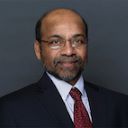
Dr. Vijayan Asari is the University of Dayton Ohio Research Scholars Endowed Chair in Wide Area Surveillance and a professor with the Department of Electrical and Computer Engineering. He is also the director of the Center of Excellence for Computational Intelligence and Machine Vision (Vision Lab). In 1996, he joined the National University of Singapore as a Research Fellow and led a team for the development of a vision-guided microrobotic endoscopy system. In 1998, he joined the School of Computer Engineering at Nanyang Technological University (NTU), Singapore, and led the computer vision and image processing research activities in the Center for High Performance Embedded Systems at NTU. In August 2000, Dr. Asari joined the Department of Electrical and Computer Engineering at Old Dominion University (ODU), Norfolk, Virginia, as a visiting associate professor. In 2001, at ODU, he accepted a tenure track position in electrical and computer engineering. He was tenured in 2006 and promoted to full professor in May 2007. At ODU, he was also the founding director of the Computational Intelligence and Machine Vision Laboratory. Dr. Asari joined the University of Dayton in February 2010. He has received many awards for his teaching, research and leadership including the Vision Award for Excellence in August 2017, Sigma Xi George B. Noland Award in April 2016, and the Outstanding Engineers and Scientists Award for Technical Leadership in April 2015. Dr. Asari has been selected as a Fulbright Specialist by the Fulbright Specialist Program of the U.S. Department of State’s Bureau of Educational and Cultural Affairs (ECA) and World Learning in August 2017. He was elected as a Fellow of SPIE (Society of Photo-Optical Instrumentation Engineers) in November 2018. Dr. Asari has published and co-authored with his graduate students and colleagues, more than 600 research articles, including an edited book on wide area surveillance and more than 100 peer-reviewed journal papers, in the areas of image processing, computer vision, pattern recognition, machine learning, deep learning and high performance digital system architecture design.
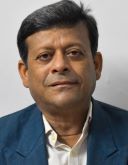
Dr. Ujjwal Maulik is a Professor in the Dept. of Comp. Sc. and Engg., Jadavpur University since 2004. He was also the former Head of the same Department. Dr. Maulik has worked in many universities and research laboratories around the world as visiting Professor/Scientist including Stanford University, USA, Univ. of Maryland at Baltimore County, USA, Univ. of Texas at Arlington, USA, Los Alamos National Lab., USA, Univ. of Heidelberg, Germany, German Cancer Research Center (DKFZ), Germany, Fraunhofer Institute for Autonome Intelligent Systems, St. Augustin, Germany, Univ. of New South Wales, Australia, Tsinghua Univ., China, International Center for Theoretical Physics (ICTP), Trieste, Italy, University of Padova, Italy, Sapienza Univ., Rome, Italy, Grenoble INP, France, University of Warsaw, Poland, Corvinus University, Budapest, Hungary and University of Ljubljana, Slovenia.

Björn W. Schuller received his diploma, doctoral degree, habilitation, and Adjunct Teaching Professor in Machine Intelligence and Signal Processing all in EE/IT from TUM in Munich/Germany where he is Full Professor and Chair of Health Informatics. He is also Full Professor of Artificial Intelligence and the Head of GLAM at Imperial College London/UK, co-founding CEO and current CSO of audEERING – an Audio Intelligence company based near Munich and in Berlin/Germany, Core Member in the Munich Data Science Institute (MDSI), Principal Investigator in the Munich Center for Machine Learning (MCML), Fellow of the Imperial Data Science Institute, and permanent Honorable Dean at TJNU/China and Visiting Professor at HIT/China amongst other Professorships and Affiliations. Previous stays include Full Professor and Chair of Embedded Intelligence for Health Care and Wellbeing at the University of Augsburg/Germany, independent research leader within the Alan Turing Institute as part of the UK Health Security Agency, Guest Professor at Southeast University in Nanjing/China, Full Professor at the University of Passau/Germany, Key Researcher at Joanneum Research in Graz/Austria, and the CNRS-LIMSI in Orsay/France. He is a Fellow of the ACM, Fellow of the IEEE and Golden Core Awardee of the IEEE Computer Society, Fellow of the BCS, Fellow of the ELLIS, Fellow of the ISCA, Fellow and President-Emeritus of the AAAC, and Elected Full Member Sigma Xi. He (co-)authored 1,500+ publications (75,000+ citations, h-index 121 ranking him number 8 in the UK for Computer Science), is Field Chief Editor of Frontiers in Digital Health, Editor in Chief of AI Open and was Editor in Chief of the IEEE Transactions on Affective Computing amongst manifold further commitments and service to the community. His 50+ awards include having been honoured as one of 40 extraordinary scientists under the age of 40 by the WEF in 2015. Currently, he was awarded ACM Distinguished Speaker for the term 2024-2027 and IEEE Signal Processing Society Distinguished Lecturer 2024.
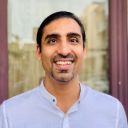
Nitendra works as the Senior Vice President and Head of AI Garage in Mastercard, which builds AI-based products in the area of Cyber and Intelligence. He has over 25 years of experience in the area of Artificial Intelligence, Machine Learning and Mobile Interactions. He has authored over 100 publications at top international ACM and IEEE venues, owing to which he has been recognized as an ACM Distinguished Scientist and a senior IEEE Member. He has delivered several tutorials and conducted workshops in AI and speech areas at top ACM venues. He has over 50 granted patents to his name. In 2012, he coauthored a book titled "Speech in Mobile and Pervasive Environments" that was published by John Wiley & Sons. In 2021, he was recognized with the Technical Role Model in AI award at Zinnov Awards. In 2022, he was recognized as an ACM Distinguished Speaker and also as Top AI Leader by Analytics India Magazine. In 2024, he was recognized as top 100 AI Thought Leaders by H2o.ai. In 2025, he was recognized as 150 executives leading the way by Constellation Research. Before joining Mastercard, he spent 18 years at IBM Research, working on different aspects of machine learning, HCI, software engineering and mobile sensing. He then spent 2.5 years at InfoEdge as EVP and Head of Analytics from 2017 to 2019. Nitendra holds a Masters degree from IIT Bombay.

Dr. Peter Han Joo Chong is the Associate Head of School (Research) at the School of Engineering, Computer and Mathematical Sciences, Auckland University of Technology, New Zealand. Between 2016 and 2021, he was the Head of Department of Electrical and Electronic Engineering at AUT. He received the B.Eng. (with distinction) in Electrical Engineering from the Technical University of Nova Scotia, Canada, in 1993, and the M.A.Sc. and Ph.D. degrees in Electrical and Computer Engineering from the University of British Columbia, Canada, in 1996 and 2000, respectively. He has visited Tohoku University, Japan, as a Visiting Scientist in 2010 and Chinese University of Hong Kong (CUHK), Hong Kong, between 2011 and 2012. He is currently an Adjunct Professor at the Department of Information Engineering, CUHK. He is a Fellow of the Institution of Engineering and Technology (FIET), UK. Prof. Chong is listed in the World's Top 2% Scientists published by Stanford University in 2022. Prof. Chong received the Research Excellence Award from the Faculty of Design and Creative Technologies in 2023. Before joining AUT in 2016, Professor Chong was an Associate Professor (tenured) from July 2009 to April 2016 and Assistant Professor from May 2002 to June 2009 at the School of Electrical and Electronic Engineering, Nanyang Technological University (NTU), Singapore. Between 2011 and 2013, he was the Assistant Head of Division of Communication Engineering. Between 2013 and 2016, he was the Director of Infinitus, Centre for Infocomm Technology. He was the recipient of ‘EEE Teaching Excellence Award’ and ‘Nanyang Award Excellence in Teaching’ in 2010, and ‘Nanyang Education Award (College)’ in 2015. In 2015, he became a Fellow of the Teaching Excellence Academy in NTU. From February 2001 to May 2002, he was with the Radio Communications Laboratory at Nokia Research Center, Finland. Between July 2000 and January 2001, he worked in the Advanced Networks Division at Agilent Technologies Canada Inc., Canada. He co-founded P2 Wireless Technology in Hong Kong in 2009 and Zyetric Technologies in Hong Kong, New Zealand and US in 2017.
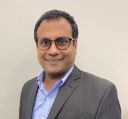
Dr. Sriraam Natarajan is a Professor and the Director for Center for ML at the Department of Computer Science at University of Texas, Dallas. He is a AAAI fellow, hessian.AI fellow and a RBCDSAI Distinguished Fellow at IIT Madras. His research interests lie in the field of Artificial Intelligence, with emphasis on Machine Learning, Statistical Relational Learning and AI, Reinforcement Learning, Graphical Models and Biomedical Applications. He has won several awards including the President's teaching award for excellence in graduate teaching, the Young Investigator award from US Army Research Office, several industry awards and best paper awards. He was the program co-chair of AAAI 2024, SDM 2020 and ACM CoDS-COMAD 2020 conferences. He is an associate editor of MLJ, JAIR and DAMI journals and is an elected member of AAAI executive council.
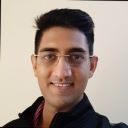
Dr. Mohit Kumar Goel is Senior Director of Data Science at Bold Technologies, USA. He received the B. Tech in Electrical Engineering from Indian Institute of Technology, Kharagpur and Ph.D degree in Brain-Computer Interface from Ecole Polytechnique Fédérale de Lausanne - Swiss Federal Technology Institute of Lausanne, Switzerland. He has designed and implemented Data Science strategies for multiple domains such as recruitment, telecom, neuroscience, operations, medical imaging, finance, radar imaging and steel rolling mills. Prior to Bold Technologies, he was working with Info Edge India Ltd. as a Vice President Data Science. The key projects executed at Infoedge includes lead scoring, search relevance, spam detection, candidate recommendations, query auto completion, parsing and machine reading comprehension. At Impetus Infotech, he led a big data project for a US based telecom client and achieved an ROI within 6 months of execution. His technical stack includes Python, R, SQL, Machine Learning libraries (sklearn, TensorFlow, transformer), GIT, databases (MySQL, MongoDB, Elasticsearch). Some of the prominent awards received during his career are NTSE, KVPY, 1st Rank in National Cyber Olympiad, Best algorithm award in Robotix at IIT Kharagpur, Employee of the month award at Impetus and “We Value You” Award at Info edge.

Dr. Robertas Damaševičius is Director at Centre of Real Time Computer System and Professor at Department of Software Engineering, Kaunas University of Technology, Kaunas, Lithuania. He received his Ph.D. degree in informatics engineering from the Kaunas University of Technology, Lithuania in 2005. Dr. Robertas Damaševičius is an Adjunct Professor at the Faculty of Applied Mathematics, Silesian University of Technology, Poland. He also lectures software maintenance, human–computer interface, and robot programming courses. Dr. Robertas Damaševičius is the author of more than 500 articles and a monograph published by Springer. His research interests include sustainable software engineering, human–computer interfaces, assisted living, and explainability. He is also the Editor-in-Chief of the Information Technology and Control journal. He has been the Guest Editor of several invited issues of international journals, such as BioMed Research International, the Journal of Healthcare Engineering, IEEE Access, Sensors, and Electronics.
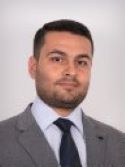
Dr. Sarbast Moslem is a researcher and educator in the fields of transport systems, civil engineering, and decision-making, currently working as Project Manager at Trinity College Dublin, Ireland. With a PhD in Transportation Engineering (Summa Cum Laude) and over a decade of international academic and consultancy experience, Dr. Moslem integrates artificial intelligence, fuzzy logic, and statistical modelling to advance sustainable mobility, infrastructure resilience, and public participation in urban transport planning. He is the Principal Investigator of the SFI-funded VOTE-TRA project, developing a digital hub for citizen-led decision-making in transport systems. His prior contributions include leading research on urban logistics in Dublin (SENATOR project) and co-developing ROBUST, a mobility hub trial funded by the Sustainable Energy Authority of Ireland. Dr. Moslem recognized among the World’s Top 2% Scientists (2024) by Stanford University and Elsevier, Dr. Moslem has published extensively in top-tier journals and was ranked the #1 researcher across two UCD schools. He brings strong interdisciplinary fluency, combining civil engineering with behavioral modeling, AI, and project management. As an experienced lecturer, he has taught across Europe, the UK, and the Middle East, consistently praised for fostering engaging, critical, and inclusive learning environments. He also serves on editorial boards of high-impact journals. Dr. Moslem actively collaborates with government, academia, and industry, transferring research into practice through consultancy, public lectures, and decision-support tools. He is a highly motivated academic leader seeking to bring innovation, impact, and excellence to forward-thinking institutions.

Dr. O.P. Gupta is Director (IT) at National Informatics Center, Ministry of Electronics and Information Technology. He is a visionary leader and a prominent figure in the field of Artificial Intelligence and Machine Learning. With 21 years of invaluable experience, Dr. Gupta has been at the forefront of groundbreaking research, particularly in the areas of masked facial recognition and the strategic integration of AI within government operations. Dr. Gupta's research has not only pushed the boundaries of technological innovation but has also had a profound impact on good governance in the digital era. His understanding and experience with the usage of convolutional neural networks, transformers and generative adversarial networks has significantly contributed to the development of many government applications, designed to bolster efficiency, transparency and accountability in government operations..
Workshop
Workshop: 01
Title: Artificial Intelligence and Quantum Computing
IBM Resource Persons, IBM Research Lab, India
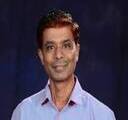
Venkat is working as IBM Quantum India Leader at IBM Research Lab, New Delhi. He received the B.E. degree in Electronics and Communication Engineering from Mysore University, the M.S. degree in Electrical Engineering from Washington University, St. Louis, USA, and the Ph. D. degree in Electronics from the Indian Institute of Technology, New Delhi, India. He joined IBM Research India in 1998 where He currently lead a team of world class researchers developing Neuro Symbolic AI and Quantum AI technologies. He is also an IBM Master Inventor. He is on the Board of Studies of DAIICT, Gandhinagar, since 2020. He was on the Senate of IIIT Delhi 2013-2015. He has been on PhD thesis committees in IIT Madras, India, DAIICT, India, IIT Delhi, India, Univ of Maryland, Baltimore County, USA, and IIIT Delhi, India.
Workshop: 02
Title: Reinforcement Learning and Its Application in Reasoning Models
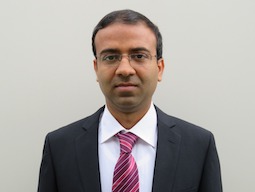
Dr. Prabhat Shankar is a Senior R&D Engineer at Industrial Automation and Process Industries Division at ABB Ability Innovation Center, Bangalore. He holds a Bachelor’s and master’s degree in electrical engineering and Instrumentation from IIT Kharagpur and a Ph.D. in Computational Biology from RIKEN Japan. He is working towards applying Machine Learning and Artificial intelligence techniques to industrial automation and Predictive Maintenance, which include Fault Prediction, Remaining Useful Life estimation, Time series forecasting, and related discipline. His broad interests lie in the field of providing robust solutions to challenging industrial problems. In his previous roles, he has worked with ABB Robotics, where he worked on optimizing pick and place operations using Reinforcement learning.
Workshop: 03
Title: Agentic AI for complex reasoning in remote sensing applications

Dr. Akshay Dudhane is working as a Research Scientist at Mohamed bin Zayed University of Artificial Intelligence, UAE, he is doing his work on cutting-edge projects in computer vision, machine learning, and medical image analysis. He is passionate about applying artificial intelligence to solve real-world problems and improve human well-being. He did his PhD in Computer Vision from Indian Institute of Technology (IIT) Ropar, where he developed algorithms for single image de-hazing using deep neural networks. He has published multiple papers in prestigious conferences (CVPR, WACV, ICIP) and journals (TPAMI, TIP, ITS), and received awards for his research excellence.
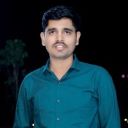
Dr. Praful Hambarde is working as Assistant Professor at Centre for Artificial Intelligence and Robotics (CAIR),Indian Institute of Technology Mandi, India. He received the PhD degree in Deep Learning from Indian Institute of Technology Mandi, India. He is a Computer Vision, Deep Learning, Generative AI, and Robotics researcher and his current research focus is to develop novel Deep learning and AI techniques for computer vision applications in Robotics, Biometric, Deepfake, Emotion Recognition, Single image depth estimation, Image Restoration, Precision Agriculture, and Medical Image Analysis.
Workshop: 04
Title: Reimagining Software in the Era of Generative AI

Atul Kumar, PhD, is a Senior Research Scientist at IBM India Research Lab in Bangalore. His research interests are in the areas of AI, Software Testing, Software Engineering, Distributed Systems, and Natural Language Processing. His current work focuses on building technologies under the broad umbrella of AI for Code at IBM Research. His group is focusing on building tools that can automatically validate the code generated by AI assisted automatic transformation. His recently completed projects include Z Test automation, Validation Assistant for Z, Mainframe Application Moderanization, Virtual Assistant for Technical Support, Ontology for IT operations and Adversarial Machine Learning.
Paper Submission
A. Guidelines for Paper Submission
(1) Authors are invited to submit their paper electronically written in English, with a length of up to 10 pages, a full paper presenting the results of original research or an innovative paper, and a short paper that is partially completed with a theoretically established idea to practical applications relevant to the conference. Over the ten (10) page limit, additional pages per paper will be charged. Authors are requested to prepare manuscript in conference Template and submit it. Authors should add the session id on the upside of the title of the manuscript if they wish to submit it under a special session.
Special Session
| S.no | Session ID | Details of Special Session | |
| 1. | ICMLDE.001 | Topic | Innovation through Machine Learning: Adoption and Impact |
| Session Chairperson | Hamed Taherdoost | ||
| Co Chairs | |||
| Organization | University Canada West, Canada | ||
| Hamed.taherdoost@gmail.com | |||
| 2. | ICMLDE.002 | Topic | Unleashing strength of Deep Learning and Artificial Intelligence in Computer Vision and Processing |
| Session Chairperson | Dr Rimjhim Padam Singh | ||
| Co Chairs | Dr. Richa Makhijani and Dr. Garima Singh | ||
| Organization | Amrita School of Computing, Amrita Vishwa Vidyapeetham, India Indian Institute of Information Technology, Nagpur, India Thapar Institute of Engineering and Technology, Patiala |
||
|
ps_rimjhim@blr.amrita.edu richa.makhijani@iiitn.ac.in garima.singh@thapar.edu |
|||
| 3. | ICMLDE.003 | Topic | Advances and Techniques in Deep Learning: Optimization, Architecture, and Generative Models |
| Session Chairperson | Dr. Velliangiri Sarveshwaran and Dr Karthikeyan Periyasamy | ||
| Co Chairs | |||
| Organization | National Chung Cheng University, Chiayi, Taiwan SRM Institute of Science and Technology, Kattankulatur Campus, Tamil Nadu, India |
||
| velliangiris@gmail.com | |||
| 4. | ICMLDE.004 | Topic | Advanced Techniques and Applications in Machine Learning and Data Engineering |
| Session Chairperson | Dr. K. Suresh Manic | ||
| Co Chairs | Dr. Feras Al Attar | ||
| Organization | National University of Science and Technology, Oman | ||
|
sureshmanic@nu.edu.om ferasalattar@nu.edu.om |
|||
| 5. | ICMLDE.005 | Topic | Recent Advancements in AI, Machine Learning & Deep Learning based Applications |
| Session Chairperson | Dr. Rajkumar R | ||
| Co Chairs | Dr. E. Sathiyamoorthy | ||
| Organization | VIT University, Vellore, India | ||
|
vitrajkumar@gmail.com esathiyamoorthy@vit.ac.in |
|||
| 6. | ICMLDE.006 | Topic | Natural Language Processing for Smart Healthcare |
| Session Chairperson | Dr. Hiren Kumar Thakkar | ||
| Co Chairs | Dr. Djeane Debora Onthoni and Dr. Hiren Mewada | ||
| Organization | Pandit Deendayal Energy University, Gandhinagar, Gujarat, India National Health Research Institutes, Zhunan, Taiwan Prince Mohammad Bin Fahd University, Saudi Arabia |
||
|
hiren.pdeu@gmail.com Djeane@nhri.edu.tw hmewada@pmu.edu.sa |
|||
| 7. | ICMLDE.007 | Topic | Intelligent Vehicles and Next-Gen Communication: Exploring the Nexus of AI, ML, and Autonomous Technology |
| Session Chairperson | Dr. Arun Kumar | ||
| Co Chairs | Dr. Vinay Anand Tikkiwal | ||
| Organization | National Institute of Technology, Rourkela, India Jaypee Institute of Information Technology, Noida, India |
||
|
kumararun@nitrkl.ac.in vinay.anand@jiit.ac.in |
|||
| 8. | ICMLDE.008 | Topic | Advancements in Computing with Machine Learning, IOT, Real-Time, Big data |
| Session Chairperson | Dr. Chaman Verma | ||
| Co Chairs | Dr. Zoltan Illes | ||
| Organization | Eötvös Loránd University, Hungary | ||
|
chaman@inf.elte.hu illes@inf.elte.hu |
|||
| 9. | ICMLDE.009 | Topic | Image Processing in the healthcare system |
| Session Chairperson | Dr. Bilal OZTURK | ||
| Co Chairs | |||
| Organization | Istanbul Aydin University. Istanbul, Turkey | ||
| bilalo@aydin.edu.tr | |||
| 10. | ICMLDE.010 | Topic | Explainable Artificial Intelligence in Bioengineering |
| Session Chairperson | Dr. Francesco Mercaldo | ||
| Co Chairs | Antonella Santone and Pan Huang | ||
| Organization | University of Molise, Italy University of Molise, Italy Nanyang Technological University, Singapore |
||
| francesco.mercaldo@unimol.it | |||
| 11. | ICMLDE.011 | Topic | IoT and Machine Learning Innovative Solutions for Forth Industrial Revolution Healthcare |
| Session Chairperson | Prof. Matthew O Adigun Sunday A. Ajagbe |
||
| Co Chairs | |||
| Organization | University of Zululand, South Africa | ||
|
adigunm@unizulu.ac.za saajagbe@pgschool.lautech.edu.ng |
|||
| 12. | ICMLDE.012 | Topic | Emerging trends in Machine Learning and Deep Learning |
| Session Chairperson | Dr. Sudeep Tanwar, Dr. Jitendra Bhatia and Dr. Joel J.P.C. Rodrigues | ||
| Co Chairs | Dr. Navin Kumar, Dr. Shilpa Gite, Dr. Uttam Chauhan and Dr. Nilesh Patel | ||
| Organization | Nirma University, Ahmedabad, Gujarat, India Amazonas State University, Manaus, Brazil Indian Institute of Information Technology Vadodara, India Symbiosis Institute of Technology, Pune, India Gujarat Technological University, India Jaypee University, Guna, India |
||
|
sudeep.tanwar@nirmauni.ac.in jitendra.bhatia@nirmauni.ac.in; joeljr@ieee.org |
|||
| 13. | ICMLDE.013 | Topic | Cutting-Edge Research in Biometrics using Machine Learning |
| Session Chairperson | Dr. Gururaj H L | ||
| Co Chairs | Dr. Francesco Flammini and Dr. Shreyas J | ||
| Organization | Manipal Academy of Higher Education, Manipal, India University of Applied Sciences and Arts of Southern Switzerland, Switzerland |
||
|
gururaj.hl@manipal.edu francesco.flammini@mdu.se |
|||
| 14. | ICMLDE.014 | Topic | Deep Learning Advancements in Natural Language Processing and Computer Vision |
| Session Chairperson | Dr. Nikhil Marriwala | ||
| Co Chairs | Dr. Vinod Kumar Shukla and Dr. Vikas Mittal | ||
| Organization | Kurukshetra University, Kurukshetra, India Amity University Dubai, UAE National Institute of Technology, Kurukshetra, India |
||
|
nmarriwala@kuk.ac.in vshukla@amityuniversity.ae vikas_mittal@nitkkr.ac.in |
|||
| 15. | ICMLDE.015 | Topic | Explainable Machine Learning (XML) in Image Processing Applications |
| Session Chairperson | Dr. S. Geetha | ||
| Co Chairs | Dr. Seifedine Kadry and Dr. A. Sheik Abdullah | ||
| Organization | Vellore Institute of Technology, Chennai Campus, India Noroff University College, Norway |
||
|
geetha.s@vit.ac.in Seifedine.kadry@noroff.no Sheikabdullah.a@vit.ac.in |
|||
| 16. | ICMLDE.016 | Topic | Transforming Daily Life with IoT and Machine Learning |
| Session Chairperson | Dr. Yugal Kumar | ||
| Co Chairs | Dr. Sahil Sharma and Dr. Dilip Kumar Choubey | ||
| Organization | NMIMS Chandigarh Campus, India Ulster University, Northern Ireland, UK Indian Institute of Information Technology, Bhagalpur, India |
||
|
yugal.kumar@nmims.edu s.sharma@ulster.ac.uk dkchoubey.cse@iiitbh.ac.in |
|||
| 17. | ICMLDE.017 | Topic | Applications of Generative ML Algorithms in Education |
| Session Chairperson | Dr. Anjali Munde | ||
| Co Chairs | Chandan Kumar Jha | ||
| Organization | University of Southampton, Malaysia Profitability Analytics Center of Excellence, New York, USA |
||
| a.munde@soton.ac.uk | |||
| 18. | ICMLDE.018 | Topic | Advances in Natural Language Processing with AI and Machine Learning |
| Session Chairperson | Dr. Neetesh Saxena Dr. Pardeep Singh |
||
| Co Chairs | Dr. Arun Kumar and Harpreet S Parmar | ||
| Organization | School of Computer Science and Informatics, Cardiff University, UK National Institute of Technology, Hamirpur, India National Institute of Technology, Hamirpur, India CXC Corporate Services Pty Ltd, Melbourne, Australia |
||
|
saxenan4@cardiff.ac.uk pardeep@nith.ac.in ayadav@nith.ac.in parmar.harpreet@gmail.com |
|||
| 19. | ICMLDE.019 | Topic | Transformative Machine Learning: From Data Engineering to Generative Knowledge Systems |
| Session Chairperson | Dr. Akansha Singh Dr. Krishna Kant Singh |
||
| Co Chairs | Dr. Mohit Kumar and Dr. Mohamed Abouhawwash | ||
| Organization | Bennett University, India Delhi Technical Campus, India National Institute of Technology, Jalandhar, India Mansoura University, Egypt |
||
|
akanshasing@gmail.com krishnaiitr2011@gmail.com kumarmohit@nitj.ac.in abouhaww@msu.edu |
|||
| 20. | ICMLDE.020 | Topic | Transforming Healthcare with IoT, Deep Learning, and Cloud Intelligence |
| Session Chairperson | Dr. Puneet Sharma Dr. Saurabh Skukla Dr. Shri Krishna Pandey |
||
| Co Chairs | |||
| Organization | Karnavati University, Gandhinagar, Gujarat, India Indian Institute of Information Technology, Lucknow, India Manipal Academy of Higher Education (MAHE), Dubai, UAE |
||
|
dr.puneetsharma9@gmail.com saurabh.shukla@iiitl.ac.in skpandey@manipaldubai.com |
|||
| 21. | ICMLDE.021 | Topic | Edge Intelligence: Integrating IoT, Machine Learning, and Computing Architectures |
| Session Chairperson | Dr. T. Poongodi | ||
| Co Chairs | Dr. M Kiruthika Dr. R. Gopal Dr. John A Dr. Aruna M |
||
| Organization | Dayananda Sagar University, Bangalore, India SRM Institute of Science and Technology, Kattankulathur, India University of Buraimi, Al Buraimi, Oman Military College of Telecommunication and Engineering, Mhow, India National Institute of Technology Jalandhar, India |
||
|
kiruthikats@gmail.com rgopalkarur@gmail.com johnmtech@gmail.com malika@nitj.ac.in |
|||
| 22. | ICMLDE.022 | Topic | Multimodal Deep Learning and AI for Precision Medicine: Advances in Imaging and Clinical Integration |
| Session Chairperson | Dr. Deepika Koundal | ||
| Co Chairs | Dr. Kanika Bhalla | ||
| Organization | University of Eastern Finland, Finland Washington University School of Medicine in St. Louis, USA |
||
|
dkoundal@uef.fi bhalla@wustl.edu |
|||
| 23. | ICMLDE.023 | Topic | Intelligent Edge: Machine Learning-Driven Solutions for Smart Cities |
| Session Chairperson | Dr. K Hemant Kumar Reddy Dr. Diptendu Sinha Roy |
||
| Co Chairs | Prof. Ugo Fiore | ||
| Organization | Vellore Institute of Technology, Andhra Pradesh, India National Institute of Technology, Shillong, India University of Salerno, Italy |
||
|
hemanth.reddy@vitap.ac.in diptendu.sr@nitm.ac.in ufiore@unisa.it |
|||
| 24. | ICMLDE.024 | Topic | Machine Learning for Bioinformatics |
| Session Chairperson | Dr. Sachin B. Jadhav | ||
| Co Chairs | Dr Mukesh Prasad | ||
| Organization | Jawaharlal Nehru University, New Delhi, India University of Technology Sydney, Australia |
||
|
sachinjadhav@jnu.ac.in Mukesh.Prasad@uts.edu.au |
|||
| 25. | ICMLDE.025 | Topic | Machine Learning and Optimization Techniques |
| Session Chairperson | Dr. Vivek Kapoor | ||
| Co Chairs | Dr. Kamal Raj Pardasini and Dr. Nitin Naik | ||
| Organization | Devi Ahilya University, Indore, India Maulana Azad National Institute of Technology (MANIT), Bhopal, India Aston University, UK |
||
|
vkapoor@ietdavv.edu.in kamalrajp@hotmail.com n.naik1@aston.ac.uk |
|||
| 26. | ICMLDE.026 | Topic | Data Modelling using Generative Artificial Intelligent |
| Session Chairperson | Dr. Bibhudatta Sahoo Dr. Debabrata Singh |
||
| Co Chairs | Dr. Naresh Kumar | ||
| Organization | National Institute of Technology Rourkela, India SOA Deemed to be University, India University of Nizwa, Sultanate of Oman, Oman |
||
|
bibhudatta.sahoo@gmail.com debabratasingh@soa.ac.in naresh@unizwa.edu.om |
|||
| 27. | ICMLDE.027 | Topic | Machine Learning and Quantum Computing |
| Session Chairperson | Dr. Bhaskar Biswas Dr. Mukesh Kumar |
||
| Co Chairs | Dr. Shivansh Mishra Dr. Preethi |
||
| Organization | IIT-BHU, Varanasi, India Kalinga Institute of Industrial Technology, Bhubaneswar, India Indian Institute of Information Technology-DM Jabalpur, India Woosong University, Daejeon, South Korea |
||
|
bhaskar.cse@iitbhu.ac.in mukesh.kumarfcs@kiit.ac.in shivansh@iiitdmj.ac.in preethi.ga@wsu.ac.kr |
|||
| 28. | ICMLDE.028 | Topic | Explainable AI in Biomedical Applications |
| Session Chairperson | Dr. Neha Prerna Tigga Dr. Ankita Kumari |
||
| Co Chairs | Dr. Nandini Kumari Dr. Shalini Mahato Dr. Fady Alnajjar |
||
| Organization | Amity University, Noida, UP Indian Institute of Information Technology, Ranchi, India Birla Institute of Technology, Mesra, Ranchi, India National Institute of Advanced Manufacturing Technology, India United Arab Emirates University, Al Ain, UAE |
||
|
nptigga@amity.edu ankita@iiitranchi.ac.in missnandinikumari@gmail.com smahato@niamt.ac.in fady.alnajjar@uaeu.ac.ae |
Registration
| Category | Registration Deadline (Round 01 as per notification 09 October 2025 and Round 2 as per notification on or before 15 October 2025) |
| INDIAN DELEGATES (INR) | |
| Regular Author | 11500 |
| Students Author | 11000 |
| Industry Professional | 12500 |
| 2nd paper, Regular Author | 11000 |
| Listener (Non-Author/Co- Author/General Participants) | 5000 (per person) |
| INTERNATIONAL DELEGATES (US $) | |
| Regular Author | 350 |
| Students Author | 300 |
| 2nd paper, Author from other countries | 250 |
| Listener (Non-Author/Co- Author/General Participants) | 150 |
| WORKSHOP | |
| Registered Authors of ICMLDE (Certificate will be provided for all the participants) |
Free |
| Non-Author/General Participants | 4000(Indian Rupees)per person |
1. Details on how to pay the registration fee through wire transfer are provided to participants.
2. Delegates/authors paying by wire transfer should use the following account information and submit their bank transaction slip and other pertinent information to info@icmlde.org.
Scan QR code to pay Registration Fees via UPI/Credit Card/Debit Card

Payment QR Code
| Name of Beneficiary | UPES |
| Purpose | ICMLDE CONFERENCE |
| Name of the Bank | YES Bank |
| Account No. of Beneficiary | 011594600000224 |
| Branch Code | 000115 |
| Branch IFSC Code | YESB0000115 |
| Swift Code | YESBINBB |
| Type of Account | Savings |
| Complete Postal Address | Ground Floor, 56, Rajpur Road, Dehradun, Uttarakhand, India- 248001 |
Sponsorship
Sponsorship of ICMLDE-2025 will provide a unique opportunity for an organization or company to increase its visibility and product awareness within a highly specialized, influential community. For ICMLDE-2025 sponsorship opportunities please contact to organizer: info@icmlde.org
| Gold Sponsor (Rs 2 Lakh) |
 |
BENEFITS:
|
| Silver Sponsor (Rs 1 Lakh) |
 |
BENEFITS:
|
| Bronze Sponsor (Rs 0.5 Lakh) |
 |
BENEFITS:
|
Contact Us
For Enquiry :
Dr. Vijendra Singh
Organizing Chairs
School of Computer Science,
UPES,
Bidholi Via-Prem Nagar
Dehradun-248007
Email id: info@icmlde.org
